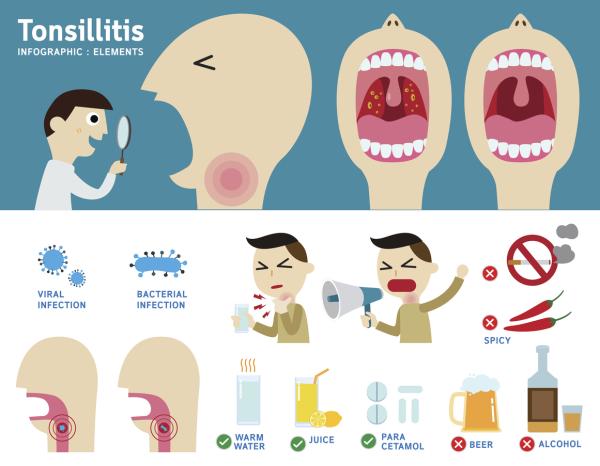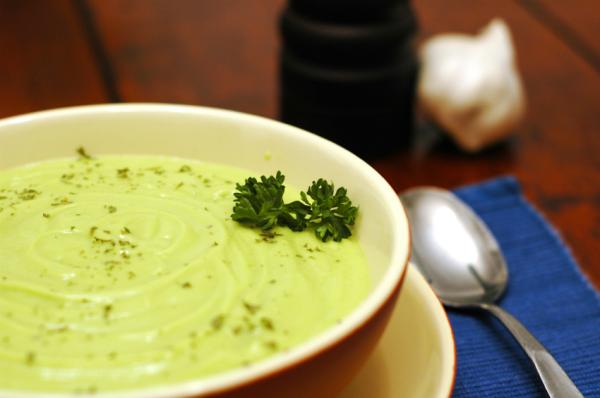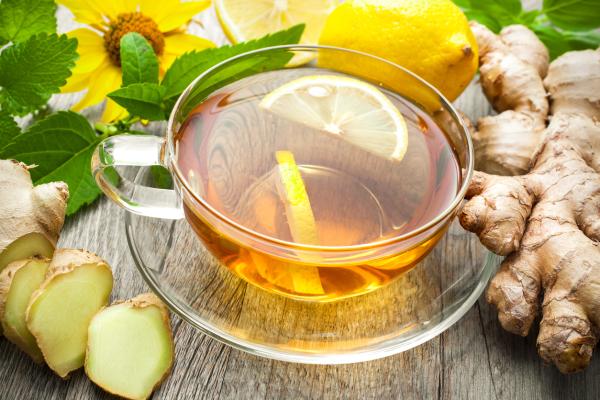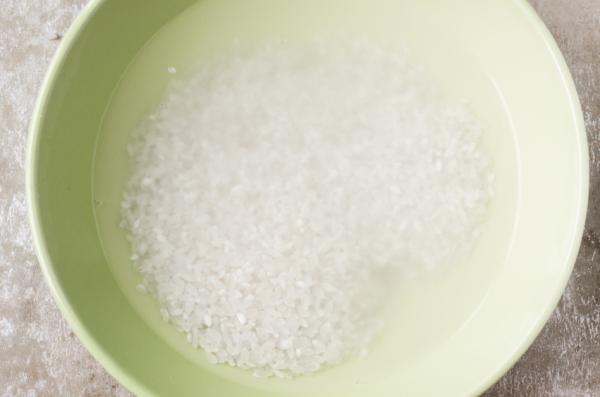
Inflammation of the tonsils, also known as tonsillitis, is when your tonsils to swell due to a viral infection. Or, less often, a bacterial infection. Often the symptoms are mild, with some swelling and a general run-down feeling. If the tonsillitis is acute or chronic, the levels of pain and discomfort can be intense and will need antibiotics to ease the symptoms. Although it is ill-advised among adults, in severe cases tonsillitis will require surgical removal of the tonsils. You may be waiting for a surgery date, have just taken antibiotics or are only starting to see the signs of tonsillitis. Either way, oneHOWTO will show you the best things to eat when you have tonsillitis to reduce the intensity of your symptoms.
Avoid hot drinks
It is generally not recommended to drink hot drinks due to the risk factor for your esophagus. But if you have tonsillitis, this is particularly the case. Eating hot food or drink can increase irritation, inflame the tonsillitis and cause greater discomfort. The tonsils are already sensitive, so scalding them will not make them any better and could lead to further problems. If you are eating hot food or drinking hot beverages while you have tonsillitis, let them cool to room temperature before ingesting. If you don't have the patience, eat food which is best served cold in the first place. Alcoholic beverages and smoking will worsen the tonsillitis, so avoid them. Smoking is not only bad for you if you have swelling caused by tonsillitis, it ¡s not good for you in general.

Recommended soft foods
As the tonsils are between the mouth cavity and the opening of the esophagus, the food you eat will have to pass by them before it enters the stomach. As the tonsils are inflamed, if this food is too big or coarse then it interferes with the sensitive swollen tonsils on its way down. The tonsils are trying to heal, so just as you shouldn't pick a scab on your knee, you should do what you can to not agitate the tonsils. Soft foods such as broths, boiled vegetables and tender meat require little chewing and won't irritate the tonsils much. Again, ensure to eat them at an appropriate temperature, otherwise you may be worse off than having eaten nothing. Taking painkillers like paracetamol and ibuprofen with food will help the pain and protect the stomach.

Nutrition is important
The nutritional value of your food is as important as its texture. If your body has an infection like tonsillitis, then you need to eat food which boosts your immune system. As part of the issue is the swelling of the tonsils, you must eat food which is a natural anti-inflammatory. These include:
- fatty fish with high levels of omega-3 (like salmon, herring, anchovies and sardines)
- olive oil
- cruciferous vegetables (spinach, kale, collard greens)
- nuts
- fruits like tomatoes, strawberries, blueberries and cherries
Foods rich in vitamin C will also help boost your immune system. However, as the tonsils themselves are physically sensitive, you need to be careful. The high citric acid in vitamin C rich foods such as oranges and lemons can agitate the infected tonsils.
There are also foods to avoid, as they can cause further inflammation and exacerbate the tonsillitis. These include processed meats, high sugar snacks, high fat content snacks like chips, low-grade animal products and common allergens like milk, dairy, excessive gluten and some nightshades (although tomatoes should be fine).
To make the most of these nutrients when you have tonsillitis, you can eat soups and vegetable purées, that are soft, but still very nutritious. Purées with carrots, celery, tomato, butternut squash or spinach are great options. You can add a little shredded chicken to increase the protein. Further helping to keep up your defenses against infection.

Drink plenty of water
Staying hydrated is also incredibly important when you have tonsillitis. If you don't drink plenty of fluid or eat food with a high water content, then your body will not function at the optimal level. It will not only help keep your body's defenses up as you fight infection, but it will stop your throat from becoming dry. A dry throat will make swallowing even harder if you have swollen tonsils. Drinking plenty of water if you have tonsillitis is imperative, but you can also drink juices and some teas to help you along. Bear in mind that juices with a high acid content can be unhelpful. However, if you dilute the acidic juice in some warm (not hot) water, then it will stop this from happening. You can also add some honey and ginger to help boost your immune system and soothe swollen tonsils caused by tonsillitis.

Ice cream to sooth a sore throat
If you have been hospitalized or had to see a doctor because of tonsillitis, the one silver lining you may have seen is that for once in your life, ice cream consumption is encouraged! Of course, too much high sugar content food is not good to eat if you have tonsillitis, but the soothing coldness can give you some relief. The low temperature will reduce the swelling of the tonsils and can also help reduce the pain caused by tonsillitis. A sorbet is another good option as it will act in the same way, but generally will have less allergens and sugar. Greek yogurt is a probiotic and thanks to both its texture and nutritional content, will help soothe your throat.

Other recommended foods
If you're fed-up of soups and creams to eat when you have tonsillitis, boiled rice is also pretty easy to swallow. Although you may be used to eating rice with spicy food, it is ill-advisable to eat it if you have tonsillitis. Spicy food can make the swelling worse. Simply cook the rice until soft with a little salt and add some herbs, lemon and ginger to give it some antibiotic properties. Mashed potato will work in a similar way and you can eat it with some of the pureed vegetables we mentioned earlier. The healthy fat content and natural oils in avocados, along with their soft texture, make them a great option when you have tonsillitis.

Avoid dairy and meat
Avoid meats and foods that are hard to chew, since swallowing will cause discomfort. If you also have a lot of mucus, avoid cheese and milk as this will only make the condition worse. If you are eating ice cream as a means to ease the pain and swelling, please know that eating too much dairy can also be problematic. It could potentially increase your recovery time from tonsillitis. Consider dairy-free ice cream.
If after three days your condition hasn't improved, or if you have pus, swollen glands and extreme pain in the area, it's advisable to consult a doctor for a check-up. Eating certain foods to help with your tonsillitis may not be enough and they will advise whether prescribed antibiotics or even surgery are required.
Apart from the food you eat when you have tonsillitis, you can also try these home remedies. Remember you should follow your doctor's instructions in order to minimize the amount of time your tonsillitis is contagious.

This article is merely informative, oneHOWTO does not have the authority to prescribe any medical treatments or create a diagnosis. We invite you to visit your doctor if you have any type of condition or pain.
If you want to read similar articles to What to Eat When You Have Tonsillitis - The Best Foods and Drinks, we recommend you visit our Family health category.